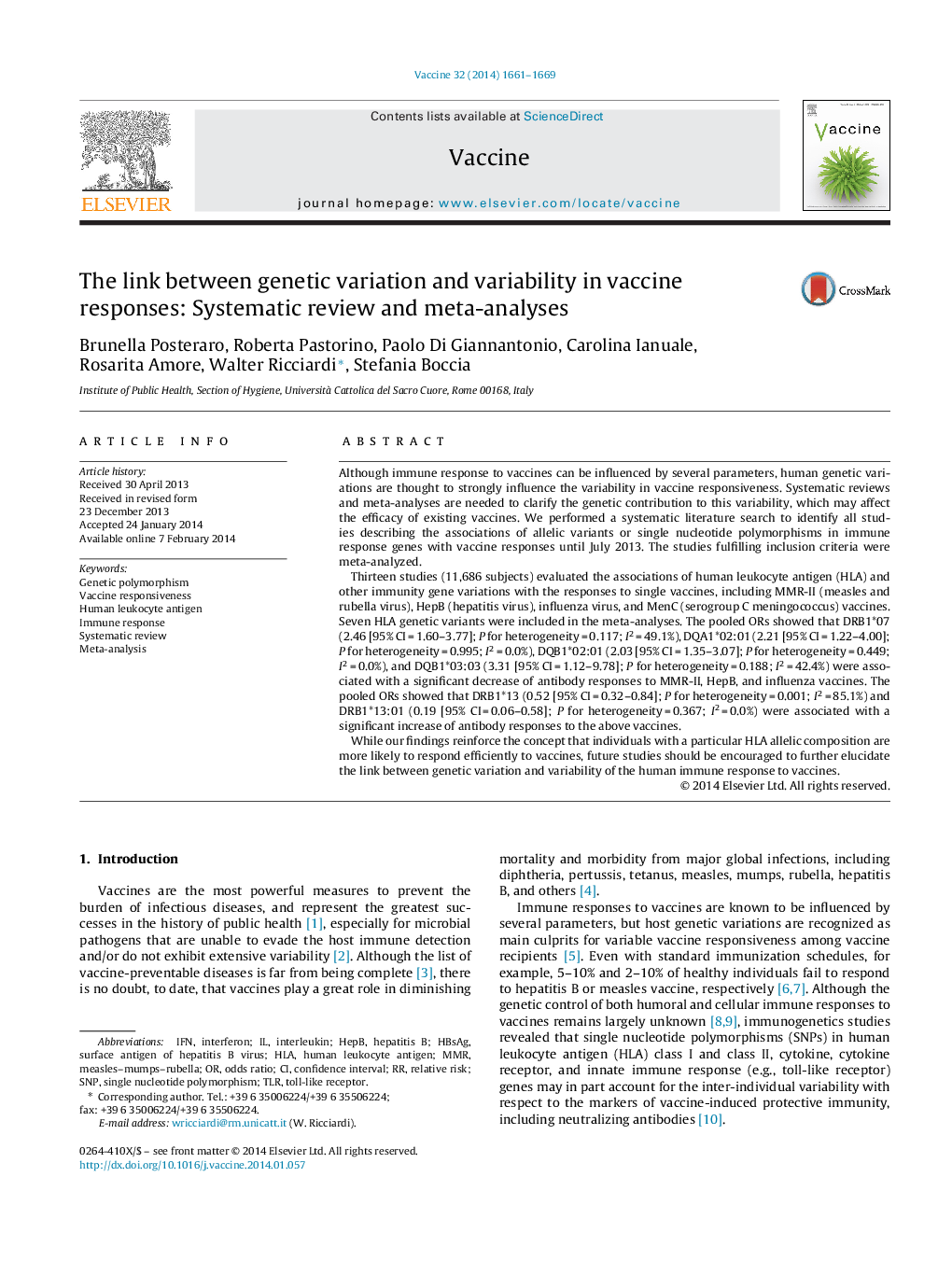| کد مقاله | کد نشریه | سال انتشار | مقاله انگلیسی | نسخه تمام متن |
|---|---|---|---|---|
| 2402247 | 1102735 | 2014 | 9 صفحه PDF | دانلود رایگان |
• Our systematic review shows that several genetic variations were significantly associated with responsiveness to vaccines.
• As most of the included studies investigated different polymorphisms, meta-analyses could be performed only for seven polymorphisms.
• Future studies are required to further clarify the link between genetic variations and variability in immune responses to vaccines.
Although immune response to vaccines can be influenced by several parameters, human genetic variations are thought to strongly influence the variability in vaccine responsiveness. Systematic reviews and meta-analyses are needed to clarify the genetic contribution to this variability, which may affect the efficacy of existing vaccines. We performed a systematic literature search to identify all studies describing the associations of allelic variants or single nucleotide polymorphisms in immune response genes with vaccine responses until July 2013. The studies fulfilling inclusion criteria were meta-analyzed.Thirteen studies (11,686 subjects) evaluated the associations of human leukocyte antigen (HLA) and other immunity gene variations with the responses to single vaccines, including MMR-II (measles and rubella virus), HepB (hepatitis virus), influenza virus, and MenC (serogroup C meningococcus) vaccines. Seven HLA genetic variants were included in the meta-analyses. The pooled ORs showed that DRB1*07 (2.46 [95% CI = 1.60–3.77]; P for heterogeneity = 0.117; I2 = 49.1%), DQA1*02:01 (2.21 [95% CI = 1.22–4.00]; P for heterogeneity = 0.995; I2 = 0.0%), DQB1*02:01 (2.03 [95% CI = 1.35–3.07]; P for heterogeneity = 0.449; I2 = 0.0%), and DQB1*03:03 (3.31 [95% CI = 1.12–9.78]; P for heterogeneity = 0.188; I2 = 42.4%) were associated with a significant decrease of antibody responses to MMR-II, HepB, and influenza vaccines. The pooled ORs showed that DRB1*13 (0.52 [95% CI = 0.32–0.84]; P for heterogeneity = 0.001; I2 = 85.1%) and DRB1*13:01 (0.19 [95% CI = 0.06–0.58]; P for heterogeneity = 0.367; I2 = 0.0%) were associated with a significant increase of antibody responses to the above vaccines.While our findings reinforce the concept that individuals with a particular HLA allelic composition are more likely to respond efficiently to vaccines, future studies should be encouraged to further elucidate the link between genetic variation and variability of the human immune response to vaccines.
Journal: Vaccine - Volume 32, Issue 15, 26 March 2014, Pages 1661–1669
